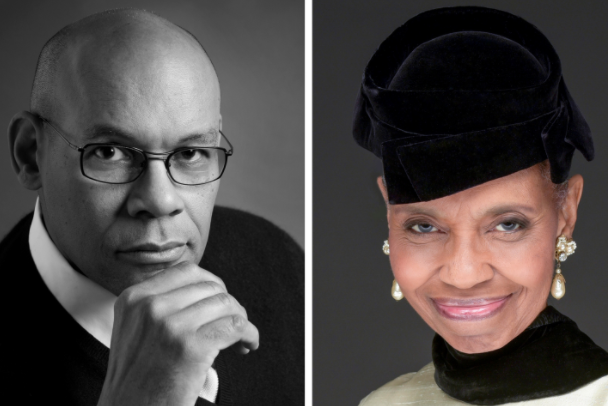 When the philosopher Alain Leroy Locke edited the Harlem issue of the Survey Graphic that appeared on March 1, 1925, he infused the literary awakening of the 1920s now called the Harlem Renaissance.
When the philosopher Alain Leroy Locke edited the Harlem issue of the Survey Graphic that appeared on March 1, 1925, he infused the literary awakening of the 1920s now called the Harlem Renaissance.
He did this with a philosophy of emancipation that was a quiet revolution in thinking about what it meant to be “Aframerican,” as he put it.
This quiet revolution would not be achieved through politics or religion, but through a philosophy, that art embodied our ability to change, to grow, and to regenerate ourselves through art and become a new people.
In an opening presentation based on his Pulitzer Prize and National Book Award-winning biography, The New Negro: The Life of Alain Locke, historian Jeffrey C. Stewart will explain this philosophy and show how Locke put it into practice, followed by a conversation with Harlem style intellectual Lana Turner.
This is the first event in our Revisiting the Harlem Renaissance series. To view all events in this series, click here.
The Speakers
Lana Turner, a native of New York’s Harlem, is a reader, writer, thinker and researcher with a keen interest in the elements of art and style in black culture and why this meditation matters.
Turner works as a real estate professional, archivist, and produces chamber music salons and literary events. She is co-founder and chair of The Literary Society (1982), a New York City book discussion group based in Harlem.
Dr. Jeffrey C. Stewart is a professor in the Department of Black Studies at the University of California, Santa Barbara. Previously, he was director of research at the Smithsonian Institution’s Anacostia Museum, a guest curator at the Smithsonian’s National Portrait Gallery, and a senior advisor to the Reginald Lewis Museum of African American History and Culture in Baltimore, Maryland.
The author of numerous articles, essays, and books, Stewart has taught at Harvard University, Yale University, UCLA, Tufts University, Howard University, Scripps College, and George Mason University before coming to the University of California, Santa Barbara as professor and chair of the Department of Black Studies from 2008-2016.
His book, The New Negro: The Life of Alain Locke was published in 2018 by Oxford University Press and has won the 2018 National Book Award in Nonfiction, the 2019 James A. Rawley Prize of the Organization of American Historians, 2019 Mark Lynton History Prize of the Nieman Foundation and Columbia School of Journalism, the 2019 American Book Award, and the 2019 Pulitzer Prize for Biography.
Individual Sessions:
- $25 general admission
- $20 seniors, students, educators
- $15 Members
Join us for all four sessions, or purchase individual session tickets.
Please note that each event will run approximately 75 minutes.
Members, sign in to receive your discount at check out.
Please email programs@mcny.org with any questions.
Accessibility: Closed captions will be available for this program.
Please contact the Museum at 917.492.3333 or info@mcny.org with any questions.
Become a Harlem Insider!
By submitting this form, you are consenting to receive marketing emails from: Harlem World Magazine, 2521 1/2 west 42nd street, Los Angeles, CA, 90008, https://www.harlemworldmagazine.com. You can revoke your consent to receive emails at any time by using the SafeUnsubscribe® link, found at the bottom of every email. Emails are serviced by Constant Contact








